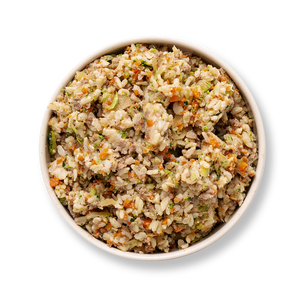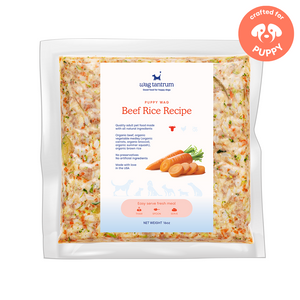My Dog Is Vomiting and I don't Know Why
Nothing brings us down faster than an upset tummy and that’s true of our furry companions as well. Vomiting dogs can be distressful for you and the dog. There are a variety of reasons for upset tummies ranging from minor indigestion to severe medical conditions. So…here’s some tips to help.
Dietary Indiscretions. That’s a fancy way of saying your pup probably ate something she shouldn’t have, which is the most common cause of dog vomiting and can be the easiest to handle. Dogs are inherently curious and explore the world through their noses and mouths. This can lead to ingesting things like spoiled food, garbage, foreign objects or even toxic substances. When that happens, their tummies go into overdrive trying to expel the material. Watch your dog carefully. If she’s sick a couple of times then seems to feel better, her body has done its work and she’ll probably be fine. If the vomiting persists, call your vet.
Gastrointestinal Upset. Some dogs have sensitive stomachs and sudden changes in their diet can lead to vomiting. Food items like table scraps, fatty or greasy food can upset their stomachs and human food like chocolate, grapes, onions and xylitol (a sugar substitute) are toxic to our four-legged pets. If Fido got into the garbage watch to see if the vomiting subsides on its own. If not, call your vet. Providing your pooch healthy organic dog food (www.wagtantrum.com) can help eliminate some gastrointestinal issues. https://www.aspca.org/pet-care/animal-poison-control/people-foods-avoid-feeding-your-pets
Motion Sickness. Just like humans, some dogs are sensitive to motion sickness. Car rides can cause an imbalance in their inner ear which leads to nausea and vomiting. So if you’re planning a trip consult your vet for advice on how to ease their discomfort.https://www.akc.org/expert-advice/health/car-sickness-in-dogs/
Viral or Bacterial Infections. Some vomiting issues are linked to parvovirus, distemper and gastritis. If your dog also has additional symptoms such as diarrhea, lethargy or loss of appetite, check with your vet as these could lead to serious issues.
Parasites. Internal parasites such as roundworms, hookworms and giardia can irritate the gastrointestinal track, leading to vomiting. Regular deworming and preventative measures can help keep these problems in check.https://vcahospitals.com/know-your-pet/internal-parasites-in-dogs
Pancreatitis. An inflamed pancreas can keep your dog from producing crucial digestive enzymes and will cause severe abdominal pain, vomiting and diarrhea. This is very serious so see your vet immediately. And help your pup manage her pancreatitis with healthy dog food and a low-fat diet.https://www.akc.org/expert-advice/health/pancreatitis-in-dogs/
Foreign Objects. Dogs (especially puppies) are notorious for swallowing objects they shouldn’t, including toys, socks or small items. Lodged in their gastrointestinal tract, the objects can cause vomiting as the body tries to remove the obstruction. Get your dog to the vet quickly so the blockages can be removed.
The best medicine for a vomiting dog is to avoid what has made her sick in the first place. Prevention is better than a cure so take some precautions. Avoid garbage and toxic substances. Watch what your dog is doing when you’re outside…if she’s VERY interested in something, but sure you check it out before she ingests it. Provide preventative treatments for parasites. And always make sure you are giving your dog the best possible food. A healthy diet of organic dog food (www.wagtantrum.com) will do the most to ensure your pooch’s gastrointestinal tracy is in tip-top shape.








